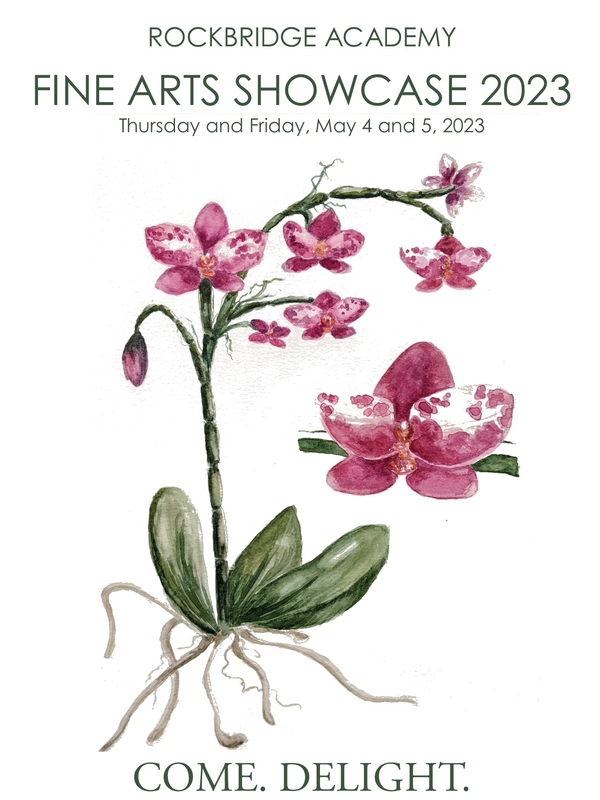Rockbridge Academy Blog
Making Room for Beauty

“Truth, Goodness, and Beauty.” If you’ve been around Classical Christian Education for more than a minute, you’ve probably noticed that we love to say these words. These three transcendentals, lauded by the philosophers of classical antiquity and rightly located by theologians in the very nature and being of God, are an apt rallying cry for the work of classical Christian education.
Still, some of us may have a more ready apology for truth and goodness than we do for beauty. We point to God’s Word as the source of truth and acknowledge Him as the One who defines all the reality of the cosmos. “All truth is God’s truth,” we rightly say. We recognize how God reveals Himself as we happily pillage the best sources of knowledge from across the ages. Likewise, we acknowledge that goodness is in and of God, both in terms of morality and blessing. The Greeks conceptualized “good” as that which fulfills its own purpose, and we find in our Creator one whose perfect purpose is actively revealed to us in His character and His work of redemption. Just as with truth, we recognize God wants us to know and explore His goodness; in fact, we cling, like David, to the comfort that “surely goodness and mercy” will pursue us all the days of our lives.
But what of beauty? Do we defend and cleave to beauty with a similar conviction? Do we remember that this third member of the triumvirate is also located in God and that He uses beauty in His pursuit of us? After all, “Beauty is in the eye of the beholder” rolls so easily off the tongue, and experience tells us that there is variety and gradation in people’s aesthetic preferences. Since there’s no accounting for taste, don’t we hit a dead-end with beauty?
Swiss theologian Hans Urs von Balthasar commented on this tendency to quietly sideline considerations of beauty when he said:
Beauty is the last thing which the thinking intellect dares to approach, since only it dances as an uncontained splendor around the double constellation of the true and the good and their inseparable relation to one another. Beauty … without which the ancient world refused to understand itself, [is] a word which both imperceptibly and yet unmistakably has bid farewell to our new world.
Even many Christians, Balthasar says, have functionally jettisoned beauty from the realm of the essential. He gives a somber warning about the consequence of this devaluing:
We no longer dare to believe in beauty and we make of it a mere appearance in order the more easily to dispose of it. Our situation today shows that beauty demands for itself at least as much courage and decision as do truth and goodness, and she will not allow herself to be separated and banned from her two sisters without taking them along with herself in an act of mysterious vengeance.
We can be grateful that there is a conscious intention at Rockbridge Academy—and in the broader classical Christian education movement—to guard against the easy “disposal” of beauty about which von Balthazar soberly warns. “Truth, Goodness, and Beauty” isn’t just a catchy slogan. It’s a shorthand reminder of a Trinitarian truth: we are made in the Imago Dei, with intellectual, moral, and aesthetic sensibilities and desires. Thus, in the classroom, asking “What is Beautiful?” is just as worthwhile as asking “What is True?” and “What is Good?”.
Classical Christian education allows breathing room for such discussions. On the one hand, our “classical” bent reminds us that, in the tradition of the best thinkers from across the ages, pursuing a better understanding of beauty helps us explore what it means to be fully human. On the other hand, our unapologetically “Christian” emphasis reminds us that the answers we seek are ultimately found outside ourselves. While God created us with individually nuanced tastes and pleasures, He is our ultimate reference for what is beautiful. Embracing this juxtaposition of imminence and transcendence in the beautiful, good, and true (and valuing their inescapable connection to one another) is a part of the very good work—the “courage and decision”—going on at Rockbridge Academy, by the grace of God.
Embracing this juxtaposition of imminence and transcendence in the beautiful, good, and true (and valuing their inescapable connection to one another) is a part of the very good work—the “courage and decision”—going on at Rockbridge Academy, by the grace of God.
Heidi Stevens taught art and humanities courses for twenty years and now serves on the Rockbridge Academy Board of Directors. She and her husband, Rick, have two grown daughters, both Rockbridge graduates.
